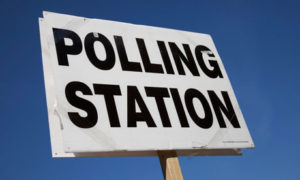Back when I was working for a living as editorial page editor for two newspapers in Texas, one of my ongoing tasks was to boost voter turnout for municipal elections.
For the most part, I butted my head bloody — figuratively, of course — trying to get residents in Beaumont and then in Amarillo to get off their duffs and cast their ballots.
I no longer work for a living, but I cannot put my desire to boost voter turnout to rest. That’s what this blog is all about
Amarillo is going to the polls on May 6. The city is going to produce another new City Council majority, with three incumbents choosing not to seek new terms. One of them is the mayor, Paul Harpole; the other two are City Councilwoman Lisa Blake and Councilman Randy Burkett.
That’s three out of five seats that will welcome new occupants. Change is afoot.
How will Amarillo voters respond? Since I no longer predict anything political, I’ll refrain from doing so here. If history is any guide, we are headed for another dismal turnout in a couple of months.
Single-digit percentage turnouts have occurred frequently during the 22 years I’ve been watching municipal elections in Amarillo. Oh sure, occasionally we get a “spike” into the 20 and 30 percent range. Those events occur usually when we have much-hyped and ballyhooed ballot measures.
Do you recall the two efforts to ban smoking indoors, both of which were defeated? Or how about the 2015 multipurpose event venue vote, which approved the MPEV? In 1996, Amarillo voted in favor of a resolution to sell the publicly owned Northwest Texas Hospital to a private health-care provider.
They all produced greater-than-normal turnouts. Were they great, as in great? My recollection is that the first smoking ban vote attracted a 30-percent turnout. Thirty percent is nothing to brag about. It means that seven out of 10 registered voters sat on the sidelines. Shameful!
At the risk of repeating myself, I am going to remind readers of this blog who happen to live in Amarillo of this fundamental truth.
It is that local elections matter in a tangible way far more than votes for president or members of Congress; they matter more than votes for governor; the Legislature, though, is a different matter, as our legislators decide on bills that could have an impact on our community.
City Hall is where these issues matter. It also matters who we elect to decide them. They set our local tax rates. They decide how many cops we have patrolling our streets. They determine the level of fire protection we get. They ensure our water flows, our lights shine and garbage gets picked up.
The municipal ballot will decide who fills all five of our City Council seats. All of those positions have contested races on the ballot.
Are we going to vote? Or are we going to let our neighbors — some of whom we might detest — decide who makes these policies for us?
It’s your call. I’ll remind you later to be sure to vote.
